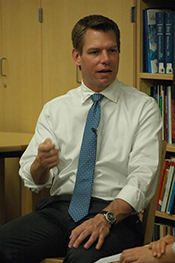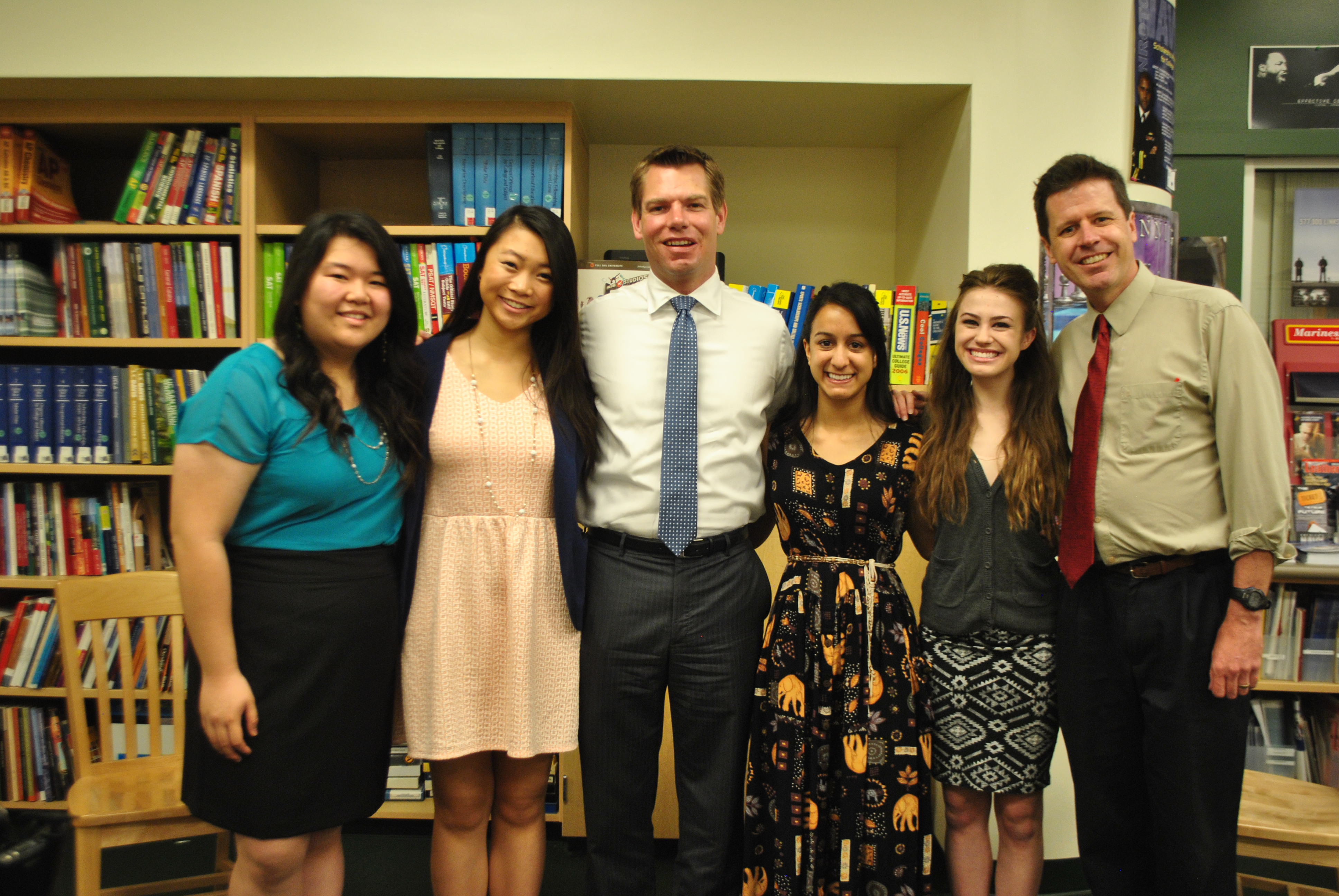Swalwell races for re-election

Congressman Eric Swalwell, the current U. S. Representative for Northern California’s 15th District, is running as incumbent for a second term. The Olympian sat down with Swalwell to talk about his experience in Congress.
Olympian: How was your first term in office and what were some of your biggest accomplishments?
Swalwell: It was exciting. It was also an opportunity for me to go back to Washington after having been away for 13 years; I was grabbed and moved by public service when I was an intern there. It has also inspired me to attend law school and work as a prosecutor for seven years in the Bay Area. I took what I learned as a prosecutor, the desire to assist people with victims of crime, and now we are able to help constituents who have their own issues with the federal government. For example, we have been able to help hundreds of people from different backgrounds who have immigration issues. So many people come to our country, wanting to realize the opportunity to make their own steps toward the American dream, but there are so many barriers and government secrecy that is in the way. Fortunately, our office was able to help a number of people in achieving citizenship. The work we have done for the aspiring Americans has been very rewarding.
Olympian: How well do you think the Democrats and Republicans are cooperating in Congress?
Swalwell: I would say within the institution, we get along very well. But the problem that I see is we have so many outside groups that spend so much money in our elections that it is pulling the parties farther and farther to the extremes. So, there was a Supreme Court case two years ago called Citizens United which stated that any corporations could spend an unlimited amount of money on elections. What we saw on 2012 was $6 billion spent on the election. When these outside groups spent all this money, members of Congress were susceptibly pulled farther because they are being challenged within their own party, not even by members of the opponent party. In this case, the greater threat emerges when someone from your party will come in and say, “You are not liberal enough.” And what that forces the members to do is to move farther and farther to the right, and that great big center where I think most of us live in, there aren’t any members who represent that center. I think that is a little disappointing but getting rid of outside corporations’ money could reverse the situation.
Olympian: If you were reelected again, what would you like to accomplish?
Swalwell: My top goal in this area is to continue witnessing economic development that could create well-paid jobs for people right out of college or mid-career folks who lose their jobs. Our area is really an area that I think represents the future economy. We have such great, educated minds in our area, people who I think will benefit the future. For example, right now as we try to address climate change, so many individuals are working on technology that allows better use of the sun, the solar, and biofuel to produce energy rather than the harmful carbon emissions that we get from fossil fuels. In addition, an increasing number of people are working in computer science and engineering to improve our lives more efficiently. So many people are working in the health care industry to utilize biotechnology to make our lives healthier and to allow us live longer lives. So much is happening now that Congress members that support the innovation make sure students are prepared to go into these fields and opportunities are here for those businesses to grow in order to create jobs. I think those are jobs that will empower the 21st century to flourish.
Olympian: I know many students today are not receiving as many opportunities because of budget cuts. For many graduating college students, it is very difficult to find jobs in the market. What kind of improvements should we expect in the next few years?
Swalwell: What I think we have to strive to do is make sure that all children starting at kindergarten are up to speed with the science technology, engineering, and critical math skills. I think when you are looking at where the U.S. economy is heading, without questioning, you have to be trained in the science field. You don’t necessarily have to become an engineer or a technologist, but having a basic level of training in that specific area will allow you to work in this innovation knowledge economy, even if it is a support capacity of some sort. There’s only one school district in my professional district that has a full K-12 STEM program. So this is why I hope that we can support from a federal level whatever these school districts need so that every school has a program that is preparing our students.

